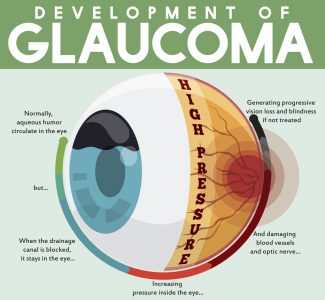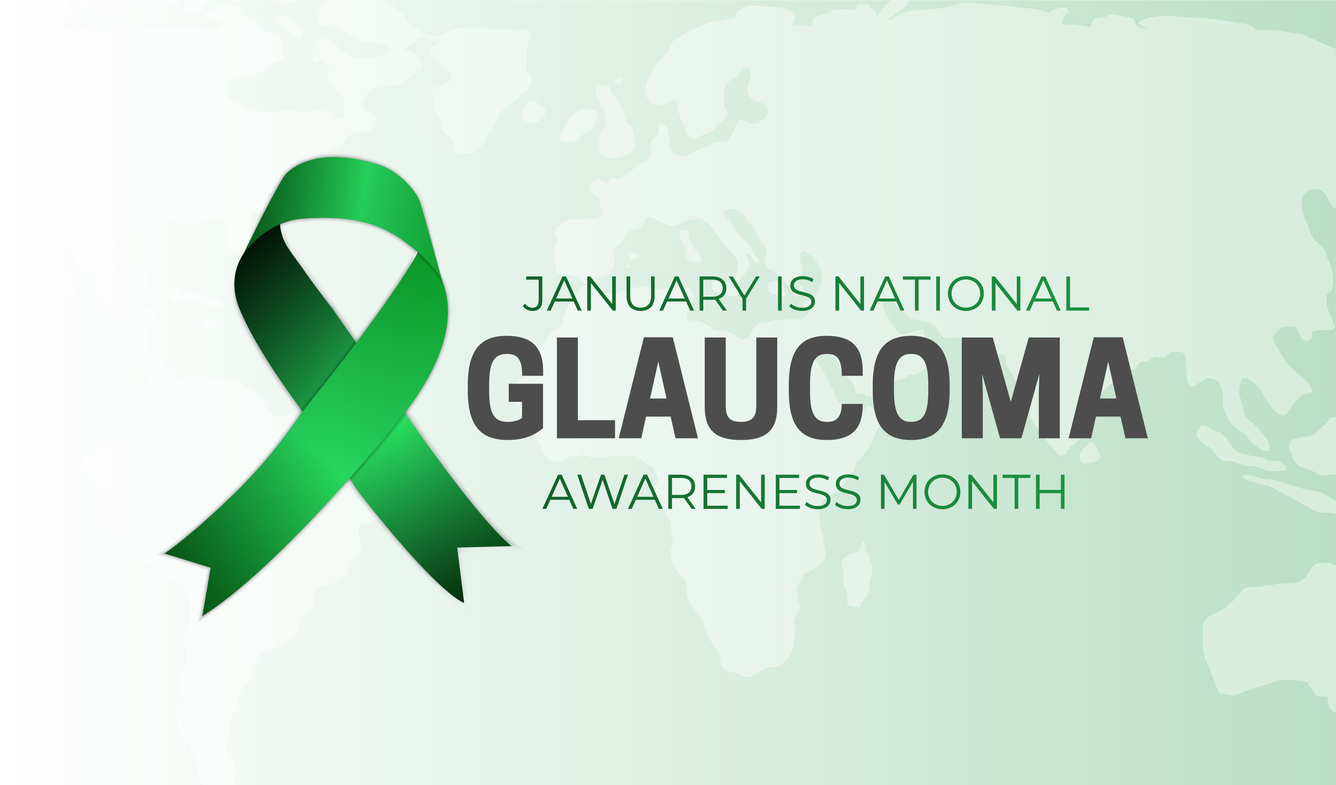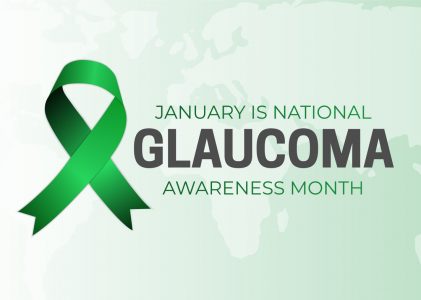The National Eye Institute (NEI) sponsors National Glaucoma Awareness Month every January to help spread the word about glaucoma which is the leading cause of blindness and vision loss in the U.S. Glaucoma is more common in older adults and African-Americans and typically has no early symptoms. Nearly half of the people with glaucoma do not even know that they have it until they begin to experience vision loss.
While there is no cure for glaucoma, a dilated eye exam can diagnose glaucoma early and treatment can help to slow or prevent vision loss.
Facts about Glaucoma
There are two main types of glaucoma:
- Primary open-angle glaucoma (POAG)
- Angle-closure glaucoma
Both of these types of glaucoma experience an increase in intraocular pressure (IOP), otherwise described as eye pressure. If optic nerve damage occurs with a normal IOP, this is called normal tension glaucoma. When another disease contributes to or causes an increase in eye pressure that results in optic nerve damage and vision loss, this is called secondary glaucoma.
Most people do not know that they have glaucoma until they begin to experience vision loss which usually starts with a loss of

peripheral vision. Other facts about glaucoma include:
- Glaucoma is the leading cause of blindness in the U.S. and the second leading cause of blindness worldwide.
- About 3 million people in the U.S. have glaucoma.
- People can lose up to 40% of their vision before it is even noticed. Once vision loss occurs, it is permanent.
- Glaucoma damages the optic nerve of the eye and results in vision loss and blindness.
- The most common form of glaucoma is open angle glaucoma, and results in increased eye pressure. This form of glaucoma is hereditary, so it helps to know your family history.
- There is currently no cure for glaucoma, but you can preserve your vision and prevent vision loss when it is caught early.
Seeing your eye doctor for regular eye exams is critical for early diagnosis. You can take action to preserve your eye health with regular eye exams.
You Can Help to Prevent Vision Loss from Glaucoma
There are many things that you can do to help reduce your risk of vision loss and protect your vision from glaucoma.
Get a comprehensive dilated eye exam if you are in a high-risk group to diagnose glaucoma early and begin treatment. You can reduce the progression of glaucoma with prescription eyedrops. A glaucoma test is covered by Medicare once per year and your eye doctor will recommend needed follow-up exams.
Even for those that are not high-risk, a comprehensive dilated eye exam by the age of 40 can help to identify glaucoma early. Controlling your blood pressure, maintaining a healthy weight, and staying physically active as well as avoiding smoking can help to prevent vision loss from glaucoma.
How to Manage and Treat Glaucoma
Glaucoma affects peripheral vision first and then will affect central vision which directly negatively impacts daily activities like driving or reading. There is no cure for glaucoma, but treatment can help to prevent the progression of vision loss. Treatments for glaucoma include prescription eyedrops, oral medication, surgery, or combination of these treatments to alleviate the pressure in the and help to prevent permanent vision loss.
It is important for patients to take medication as prescribed and to let their eye physician know if they experience any side effects. Laser or surgical procedures can help to reduce pressure in the line and require follow-up appointments with your doctor to monitor the eye pressure. Even with treatment, glaucoma can cause low vision and some people making it hard to complete daily routine tasks even with the help of prescription glasses.
The Glaucoma Research Foundation offers additional information and resources to help people diagnosed with glaucoma. Here you can find more information to understand how to protect your vision, treatment options including medication and surgery, and new research results.
Do not let glaucoma steal your sight, see your eye doctor today and take steps to reduce your risk of vision loss from glaucoma.
Greater Waterbury Imaging Center cares about your health and wellness and urges you to see your eye physician regularly and do not skip the dilated eye exams. With early treatment, you can the slow the progression of glaucoma and save your vision. Remember to contact GWIC for all your MR imaging needs.


